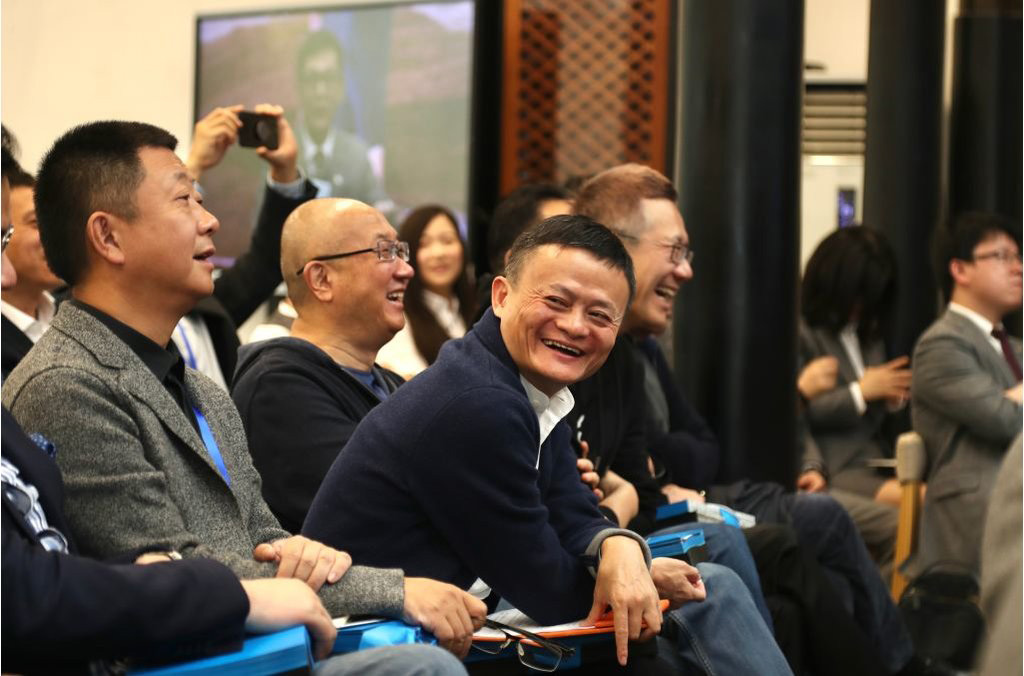996曾經推動中國科技進步,,如今終于引發(fā)眾怒
|
隨著技術開發(fā)人員開始對長時間的工作提出抗議,,剛剛走出資本寒冬的中國科技行業(yè)可能又要步入另一個怨聲載道的冬天,。 3月,在微軟(Microsoft)供開發(fā)人員共享軟件代碼的論壇GitHub上,,一位匿名中國用戶的帖子在網站的常規(guī)用戶之外引發(fā)了關注,。這個帖子名叫996.ICU,是對中國科技行業(yè)的開發(fā)人員忍受超長工作時間——每周6天,,早上9點至晚上9點——的抗議,。 這個被保存了超過23萬次的帖子解釋道:“工作996,生病ICU,?!边@個帖子自稱這是一次法律運動,而不是政治運動,。它詳盡解釋了996文化如何違背了中國的勞動法,。按照法律規(guī)定,每周的工作時間為40小時,,每月的加班時間最多不超過36小時,。作者以一條標語結束:“開發(fā)人員的命也是命,。” 中國的加班史 這種情緒甚至可以在硅谷引發(fā)共鳴,。幾十年來,,硅谷的技術精英讓加班帶上了些許自豪感。不過這種文化在中國蓬勃發(fā)展的科技行業(yè)得到了熱捧,。前谷歌大中華區(qū)總裁李開復在著作《AI未來》(A.I. Superpowers)中將中國科技公司的高管比作角斗場里的角斗士,他寫道:“與中國初創(chuàng)公司里的景象相比,,(硅谷的)公司顯得昏昏沉沉,,工程師看起來也很懶惰?!?/p> |
China’s tech sector, already shivering through a capital winter, could be entering a new winter of discontent, as tech developers protest long working hours. Last month on GitHub, the Microsoft-owned forum where tech developers share software codes, a post from an anonymous Chinese user garnered attention beyond the site’s typical userbase. Called 996.ICU, the post was a protest against the extreme working hours developers in China’s tech sector endure—slogging away from 9 a.m. to 9 p.m., 6 days a week. “If you work 996, you’ll be in the ICU sick,” the post, which has been saved over 230,000 times, explains. Billing itself as a legal rather than a political movement, the GitHub post details how 996 culture contravenes China’s labor laws, which mandate a work week of 44 hours with possible overtime capped at 36 hours a month. The author signs off with the tagline, “Developers’ lives matter.” China’s history of overwork It’s a sentiment that could resonate even in Silicon Valley, where for decades tech elites have made overwork a point of pride. But that culture reached fever pitch in China’s booming tech sector. In his book A.I. Superpowers, former Google China president Kai-fu Lee likens China’s tech executives to gladiators in a coliseum and writes that “compared to China’s start up scene, [Silicon Valley’s] companies look lethargic and its engineers lazy.” |

|
李開復寫道,,中國早期的科技界企業(yè)家的驅動力,,部分源于成為脫離極度貧困的一代人的敏銳意識。在20世紀70年代末市場改革推動中國經濟崛起之前,,這種貧困一直困擾著中國,。隨后幾十年的大部分時間里,中國的國內生產總值年均增長率都超過了10%,。不過2017年,,按照決策者的話來說,經濟進入了中速增長的“新常態(tài)”,,國內生產總值的年均增長率如今維持在7.6%左右,。 香港中文大學的一位社會科學教授陳力表示:“如今996的反對呼聲高漲,是因為過去十年飛速增長的中國互聯網行業(yè)如今感受到了經濟增速放緩的壓力,?!?/p> 科技行業(yè)的增長跌落凡間 經濟的疲弱驚嚇了投資者,也引發(fā)了中國科技界的恐慌,。中國的研究機構的數據顯示,,今年第一季度,風投資本家和私人股本公司的投資金額同比下滑了87%,。 許多中國的科技公司選擇通過裁員來應對下行壓力,。據報道,打車巨頭滴滴出行正在醞釀裁掉15%的員工,,而中國無處不在的消息服務微信的開發(fā)商騰訊也計劃削減10%的管理人員,。本月又有報道稱京東計劃裁員8%,也就是大約1.8萬名員工,。 盡管如此,,中國一些科技巨頭的高管還在不斷表達對于加班的支持,。 首席執(zhí)行官聲援“996” 在GitHub上的抗議引發(fā)主流關注后,京東的創(chuàng)始人和首席執(zhí)行官劉強東發(fā)聲支持996文化,。他表示那些拒絕996工作的人“不是我的兄弟”,。阿里巴巴的創(chuàng)始人和董事局主席馬云同樣贊同長時間工作,并表示996工作是“一種福報”,。 被996.ICU的帖子點名實行996工作文化的科技公司旗下的瀏覽器也在阻止對GitHub這個帖子的訪問,,這引發(fā)了人們對于整個運動可能遭到審查的擔憂。不過這一點不太可能,,因為刪除GitHub的帖子需要微軟的直接介入,,而微軟的員工正在請求公司不要這么做。 然而,,目前還沒有跡象表明中國政府打算通過微軟審查帖子,。實際上,多家國有媒體已經斥責了996文化及其辯護者,?!度嗣袢請蟆飞踔帘硎荆?96工作文化的合法性“顯然是存疑的”,,并表示應當對此加以審視,。 這一非官方的支持是否代表著政府的政策還有待觀察。不過,,在維持經濟增長的同時保護員工權利,,是中國政府想努力達到的目標。(財富中文網) 譯者:嚴匡正 |
China’s early tech entrepreneurs were driven, Lee writes, partly by an acute awareness of being just one generation removed from the extreme poverty that racked China before market reforms kickstarted the economy in the late 1970s. For most of the decades since, China’s gross domestic product has grown at an average 10% a year. But in 2017 the economy entered what policy makers have dubbed a “new normal” of slower growth, with annual GDP increases now knocking around 7.6%. “The reason why the 996 protests arose now is because China’s Internet industry, which had been continuously growing at very high speed for the past decade, [is] feeling the stress of the economy slowing down,” says Li Chen, a social sciences professor at Chinese University Hong Kong. ” Tech growth comes back down to Earth The weakening economy has spooked investors and rattled China’s tech scene. According to the Chinese Academy of Science and Technology, funding from venture capitalists and private equity firms dropped 87% in the first quarter over the same period last year. A number of Chinese tech firms are responding to the downward pressure by downsizing staff. Ride hailing giant Didi Chuxing reportedly is mulling a 15% cut in employee numbers while Tencent, the company behind China’s ubiquitous messaging service WeChat, is targeting a 10% reduction of management staff. This month reports claimed JD.com will lay off 8% of its staff, approximately 18,000 workers. Nevertheless, some of China’s biggest tech executives are relentless in their championing of overwork. ‘996’ gets CEO support Richard Liu, founder and CEO of JD.com, came out in favor of the 996 culture after the protest on GitHub had attracted mainstream attention. Liu said that those who refuse to work 996 are “not my brothers.” Jack Ma, founder and chairman of Alibaba, has likewise advocated for long working hours, claiming that working 996 is “a blessing.” Web browsers operated by tech companies called out by the 996.ICU post for implementing 996 work cultures are also blocking access to the GitHub post, sparking fears that the entire movement is at risk of being censored. At this stage, that seems unlikely, since removing the GitHub post would require direct intervention from Microsoft—something Microsoft employees are currently petitioning the company not to do. However, there’s no indication yet that the government intends to lean on Microsoft to censor the post. In fact, multiple state-owned media have lambasted both 996 culture and its defendants. The People’s Daily,?even called the legitimacy of a 996 working culture “clearly questionable” and said it should be reviewed. Whether that unofficial support manifests itself as government policy remains to be seen. Navigating a road between economic growth and worker’s rights has always been a struggle for the Chinese government and this white-collar protest poses a new and challenging obstacle. |













